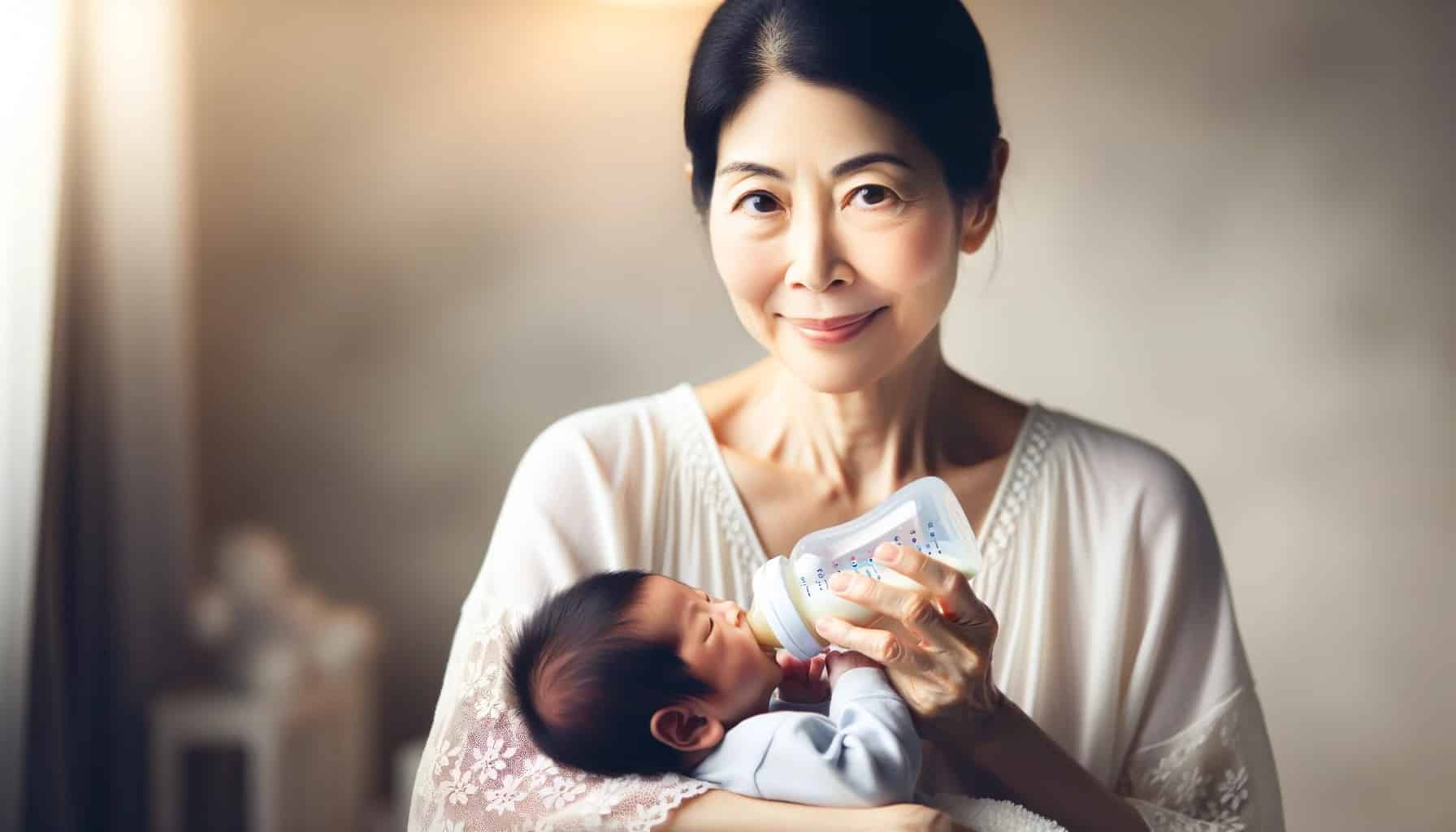Introduction to Postpartum Support
Welcoming a new baby is a life-changing experience that brings both immense joy and new challenges for mothers and their families. The postpartum period, especially the first month after giving birth, is a critical time for a mother’s recovery and for establishing a strong bond with her newborn baby. In Chinese culture, this period is guided by the principles of traditional Chinese postpartum care, known as “zuo yue zi” or “sitting the month.” This traditional practice emphasizes the importance of rest, nourishment, and holistic practices to promote healing and well-being for both the mother and her baby.
Confinement nannies play a central role in this process, offering comprehensive care that goes far beyond basic baby care. A confinement nanny is a trained caregiver who provides 24/7 newborn care, prepares healing postpartum meals, protects the mother’s rest, and supports recovery through traditional zuo yue zi practices. Her goal is to ensure the mother heals safely and the baby thrives during the first 30–120 days after birth.
Understanding Confinement Nannies
What is a Confinement Nanny?
A confinement nanny—commonly known as a Yue Sao (月嫂)—is a postpartum specialist who helps new mothers rest, recover, and regain strength after childbirth.
This care is deeply rooted in Chinese confinement tradition, known as zuo yue zi (坐月子), which emphasizes:
-
Rest and physical recovery
-
Avoiding exposure to cold
-
Eating warming and nourishing meals
-
Regulating the body after childbirth
-
Supporting breastfeeding
-
Protecting long-term maternal wellness
A confinement nanny lives with the family to provide continuous support for both mother and newborn.
The Role and Responsibilities of a Confinement Nanny
Your confinement nanny’s primary focus is to help the mother recover while ensuring the baby receives high-quality, safe care.
Newborn Care
-
Feeding (breast and bottle)
-
Diapering, burping, soothing, and swaddling
-
Safe sleep supervision (24/7)
-
Monitoring jaundice and common newborn concerns
-
Gentle baths and umbilical cord care
-
Circumcision care (boys), if requested
-
Establishing healthy feeding & sleep routines
Maternal Support
-
Encouraging rest and hydration
-
Light postpartum recovery guidance (as culturally practiced)
-
Emotional reassurance
-
Helping mother learn newborn cues
-
Support with pumping / feeding schedules
-
Protecting mother from stress and overexertion
This balanced care helps mothers recover faster while reducing postpartum overwhelm.
| Responsibility | Description |
|---|---|
| Postpartum Care for Mother | Assisting with physical recovery, providing emotional support, ensuring adherence to postpartum confinement rules, and incorporating traditional practices such as the use of herbal medicines to support recovery. |
| Infant Care and Support | Taking care of the newborn’s needs, including feeding, bathing, and sleep routines. |
| Household Chores and Meal Preparation | Managing household tasks, and preparing nutritious meals according to chinese postpartum rules, utilizing culinary skills to create delicious meals and healthy meals tailored for postpartum recovery. |
Postpartum Care for Mother
A primary responsibility of a confinement nanny is to support the mother’s recovery after childbirth. It is essential that the mother receives adequate rest during the postpartum period, typically lasting around six weeks, to promote optimal recovery and well-being. This involves ensuring the mother gets adequate rest, providing nutritious meals that promote healing and help restore the mother’s strength, and adhering to traditional postpartum care practices. The overall goal of postpartum care is to help mothers recover from pregnancy and childbirth. The nanny may also offer advice and assistance on breastfeeding and other postpartum tasks.
Infant Care and Support
Confinement nannies are skilled in newborn care, which includes feeding, diaper changing, bathing, and soothing the baby. During the confinement period, it is crucial to care for both the mother’s and baby’s needs to ensure a smooth recovery and healthy development. Their expertise helps in establishing a routine for the newborn, ensuring the baby’s development and well-being. The nanny also monitors and supports the baby’s health by observing for any signs of health issues and providing guidance on infant care best practices. In the context of feeding, the nanny supports the mother to promote healthy milk production for breastfeeding, ensuring the baby’s nutritional needs are met.
Household Chores and Meal Preparation
In addition to caring for the mother and infant, a confinement nanny takes on household responsibilities to alleviate the mother’s workload. This includes light housework, laundry, and preparing meals that are specifically designed to aid in the mother’s recovery. These meals often follow traditional recipes that are believed to help restore the mother’s strength and vitality.
If your family selects the meals included option, your confinement nanny prepares daily postpartum meals designed to:
-
Warm the body
-
Strengthen qi and blood
-
Support milk production
-
Improve digestion
-
Restore energy
-
Reduce inflammation
Typical meals include:
-
Healing soups and slow-cooked broths
-
Protein-rich dishes
-
Ginger-based stir-fries
-
Herbal teas
-
Postpartum snacks
-
A daily dessert
Additional adult meals: + $10/person/day
Services Provided

Confinement nannies offer a range of services to support new mothers and their families during the postpartum period. Their expertise ensures that both the mother and the newborn receive the best care possible.
Postpartum Care for Mother
A confinement nanny focuses on the mother’s recovery after childbirth. This includes monitoring the mother’s health, ensuring she gets sufficient rest, and providing guidance on postpartum practices. The nanny may also prepare herbal baths and teas that are believed to aid in recovery according to postpartum tradition.
| Service | Description |
|---|---|
| Monitoring Health | Regularly checks vital signs and overall well-being. |
| Herbal Baths | Prepares baths using traditional herbs to promote healing. |
| Rest and Recovery | Ensures the mother has ample rest and relaxation time. |
Overnight Care
One of the most valued benefits of a confinement nanny is full overnight newborn care, including:
-
Night feeding
-
Diaper changes
-
Burping and soothing
-
Monitoring baby’s sleep patterns
-
Resetting schedules for the next day
This uninterrupted rest is essential for maternal recovery and mental health.
| Service | Description |
|---|---|
| Feeding | Assists with breastfeeding and bottle-feeding. |
| Bathing | Bathes the baby, ensuring proper hygiene. |
| Soothing | Uses techniques to calm and settle the baby. |
Sample Daily Routine
(Your nanny adjusts based on your household’s schedule.)
6:00 AM – First morning feed
7:00 AM – Prepare warming breakfast
9:00 AM – Baby bath + nap
12:00 PM – Lunch + healing soup
2:00 PM – Bottle/pump sanitizing + laundry
4:00 PM – Feed + soothe
6:00 PM – Dinner preparation
10:00 PM – 6:00 AM – Overnight newborn care
Benefits of Hiring a Confinement Nanny

Families choose confinement care for:
-
Faster postpartum healing
-
Better sleep for both parents
-
Reduced stress and emotional overwhelm
-
Stronger breastfeeding success
-
Safe, experienced newborn handling
-
Cultural alignment for families who value traditional recovery practices
This combination of newborn care + postpartum support creates a smoother and healthier transition into parenthood.
Why Families Choose My Asian Nanny®
Our confinement nannies are:
-
Experienced with 10–30+ years of newborn care
-
Skilled in traditional confinement practices
-
Warm, patient, and culturally aligned
-
Thoroughly vetted and reference-checked
-
Carefully matched to your due date, care needs, and preferences
We manage the entire process—consultation → nanny matching → interviews → booking → ongoing support.
| Support Activity | Description |
|---|---|
| Meal Preparation | Nutritious, healing-focused meals |
| Physical Assistance | Help with daily tasks to avoid strain |
| Health Monitoring | Observing signs of recovery or complications |
Emotional and Mental Well-being
The emotional and mental state of a new mother is as important as her physical health. Confinement nannies offer emotional support and companionship, reducing feelings of isolation and stress often associated with the postpartum period.
- Providing companionship and a listening ear.
- Offering reassurance and guidance based on experience.
- Helping to establish a routine that includes time for self-care.
For additional support options, consider reading about the role of a postpartum doula.
Practical Assistance and Guidance
A confinement nanny also provides practical assistance that can significantly ease the transition into motherhood. This includes:
- Infant care and support, such as feeding, bathing, and soothing the baby.
- Household chores, ensuring the new mother can focus on her recovery and bonding with the baby.
- Guidance on newborn care practices, helping new parents feel more confident and competent in their roles.
| Assistance Type | Description |
|---|---|
| Infant Care | Feeding, bathing, soothing |
| Household Chores | Cleaning, laundry, meal prep |
| Newborn Care Guidance | Tips and best practices for baby care |
By hiring a confinement nanny, new mothers can experience a smoother transition into parenthood, benefiting from comprehensive support that addresses their physical, emotional, and practical needs. For more details on how to find the right nanny, see our guide on hire a confinement nanny.
Hiring a Confinement Nanny
Choosing the right confinement nanny is crucial for ensuring a smooth postpartum period. It involves evaluating qualifications, experience, and personal preferences.
Qualifications and Experience
When hiring a confinement nanny, one should consider their qualifications and experience. A well-qualified confinement nanny should have relevant training in postpartum care, infant care, and possibly certification in first aid. Experience is equally important as it indicates a nanny’s ability to handle various postpartum situations confidently. That’s where My Asian Nanny comes in. We are here to ensure that every nanny candidate you interview has the proper qualifications and experiences needed for your specific Family dynamics.
| Qualification | Importance |
|---|---|
| Postpartum Care Training | High |
| Infant Care Training | High |
| First Aid Certification | Medium |
| Previous Experience | High |
Experienced confinement nannies often have better problem-solving skills and can offer practical advice on motherhood and infant care. They are typically well-versed in the practices of confinement, which can significantly benefit the new mother and her baby.
Considerations for Selecting the Right Confinement Nanny
Selecting the right confinement nanny involves more than just evaluating qualifications and experience. It’s essential to consider factors such as personal compatibility, availability, and cost.
- Personal Compatibility: The nanny’s personality and approach should align with the family’s needs and expectations.
- Availability: Ensure the nanny is available for the required duration of the postpartum confinement period, which is typically about 30-120 days.
- Cost: The cost of hiring a confinement nanny can vary. It’s important to discuss fees upfront to avoid any misunderstandings later. For more detailed information, you can check our article on postpartum nanny costs.
| Consideration | Importance |
|---|---|
| Personal Compatibility | High |
| Availability | High |
| Cost | Medium |
Cultural and Personal Preferences
Cultural and personal preferences play a significant role in the selection process. For many families, adherence to postpartum traditions is essential. This can include specific dietary restrictions, practices, and rituals that are part of the postpartum confinement rules.
For families seeking a Chinese confinement nanny, it is important to ensure that the nanny is familiar with Chinese postpartum rules such as dietary guidelines and other traditional practices. These cultural practices are vital for the mother’s recovery and well-being during the confinement period.
| Cultural Aspect | Importance |
|---|---|
| Adherence to Postpartum Traditions | High |
| Knowledge of Dietary Restrictions | High |
| Familiarity with Postpartum Practices | High |
By carefully considering qualifications, experience, and cultural preferences, families can find the right confinement nanny to support them during the crucial postpartum period. For additional guidance, visit our article on how to hire a confinement nanny.
Cost and Booking
The cost of hiring a confinement nanny can vary widely depending on your location, the nanny’s experience, and the range of services provided. For families in the United States, the daily rate for a Chinese postpartum nanny typically ranges from $250 to $350 for a standard 26-day confinement period.
To secure the right confinement nanny for your family, it’s best to start the booking process 4 to 6 months before your baby’s due date. Early booking increases your chances of finding an experienced and compatible postpartum nanny who meets your specific needs. It’s also important to have a clear, written agreement that outlines fees, services, and payment terms to prevent any misunderstandings.
Families can find qualified confinement nannies through specialized agencies, reputable online platforms, or personal recommendations from friends and family members. When selecting a confinement nanny, consider factors such as language compatibility, cultural preferences, and personal rapport to ensure a smooth and supportive confinement experience. Taking the time to find the right confinement nanny will help ensure that both the mother and baby receive the best possible care during this important period.
Frequently Asked Questions
How long is the confinement period?
Traditionally about 30 days, but many families choose 4–12 weeks based on personal needs and recovery goals.
When should I book a confinement nanny?
As early as possible — recommended 4–6 months before your due date.
Peak months fill extremely fast.
Does the nanny help older children?
No. Confinement nannies focus exclusively on newborn care and maternal recovery.
Are meals included?
Meals are included only if selected. Baby-care-only nannies focus solely on newborn care.
Do you serve out-of-state clients?
Yes — families outside California are welcome.
(Travel costs + travel-day pay apply.)



